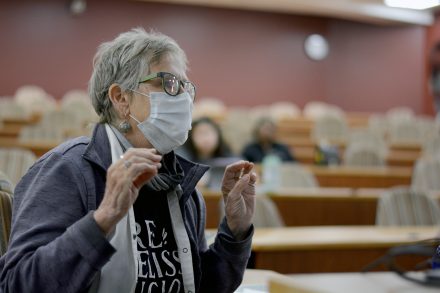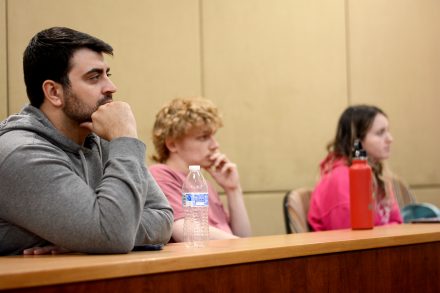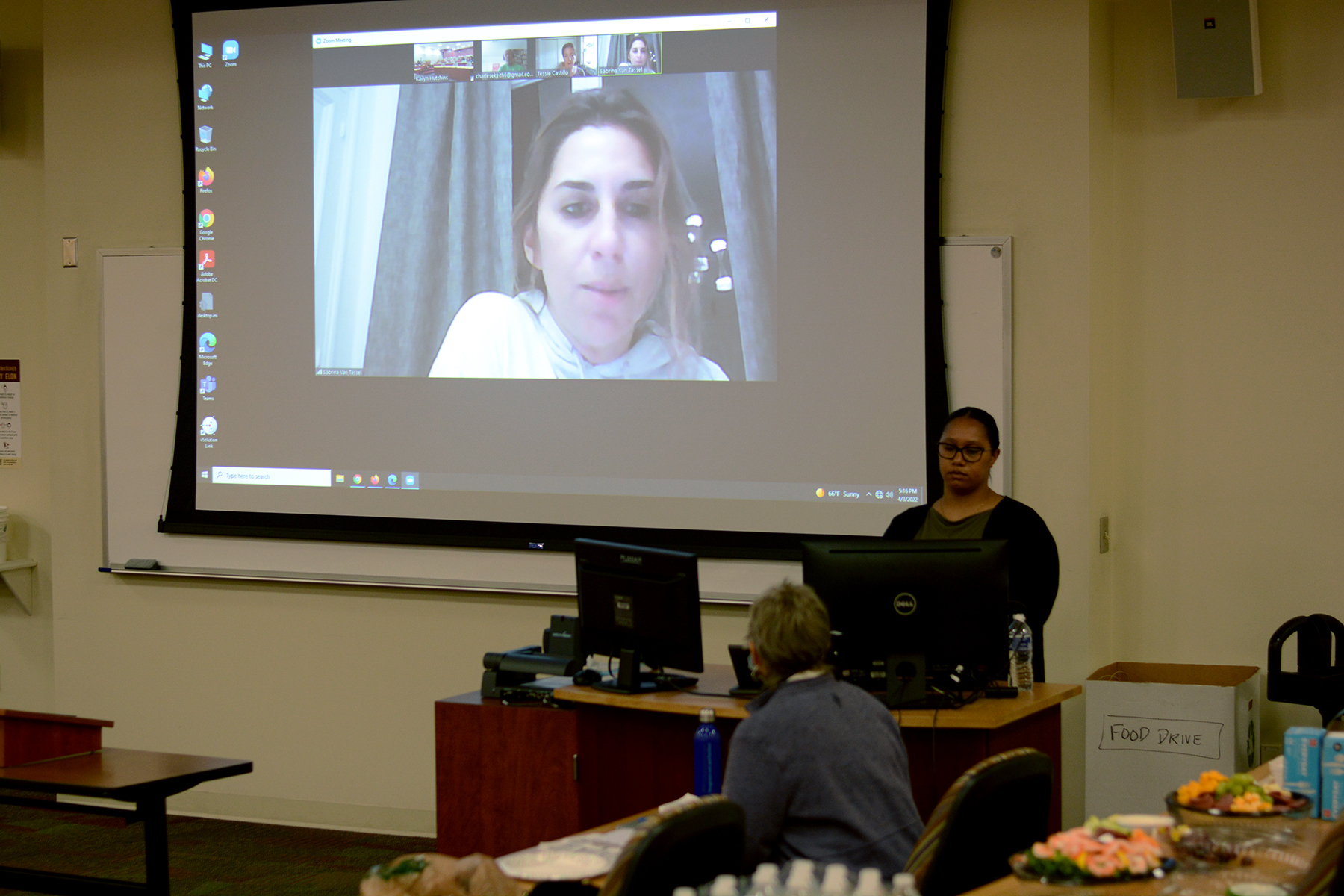Elon Law’s student chapter of the Innocence Project welcomed four speakers working to help a Texas woman scheduled for execution on April 27 whose guilty verdict more than a decade ago has been called into question.
Elon Law’s chapter of the Innocence Project hosted a documentary screening and panel discussion this month to rally support for a Texas inmate scheduled for execution at the end of April despite questions surrounding her case.
“The State of Texas v. Melissa” follows Melissa Lucio’s life, struggles, and eventual murder trial in the 2007 death of her 2-year-old daughter. Prosecutors argued that Lucio’s daughter died from injuries suffered from abuse.

Lucio’s public defender – who went to work for the district attorney shortly after the trial – chose not to put on the stand any of Lucio’s older children who saw the toddler fall from a flight of stairs three days before her death. Nor was there a history of violence toward her other children.
Lucio has been on death row since 2008. Her execution by lethal injection is scheduled for April 27, 2022.
The student organization invited filmmaker Sabrina Van Tassel, Death Penalty Action representative Charles Fischer, and author Tessie Castillo to share their views on Lucio’s case, and capital punishment more broadly, via Zoom. Maria Foutch, a local activist who advocates on behalf of condemned inmates, co-hosted the program on April 3, 2022, in Elon Law’s Room 207.

Speakers shared information in ways to advocate for Lucio, including contacting the district attorney in Gatesville, Texas; contacting the office of Texas governor Greg Abbott; and calling the state’s parole board.
“Wrongful convictions are more than an injustice in our criminal justice system. They are a burden placed upon minorities, people in poverty, and other indigent people who mainly fall victim to a clearance rate,” said Kailyn Hutchins L’22, president of the Innocence Project at Elon Law. “This issue requires us as citizens to place blame on each person who is involved … Abolishing the death penalty will certainly remedy the irreversible effect of this matter, but holding police officers, district attorneys, and defense attorneys accountable will do a lot more.”



